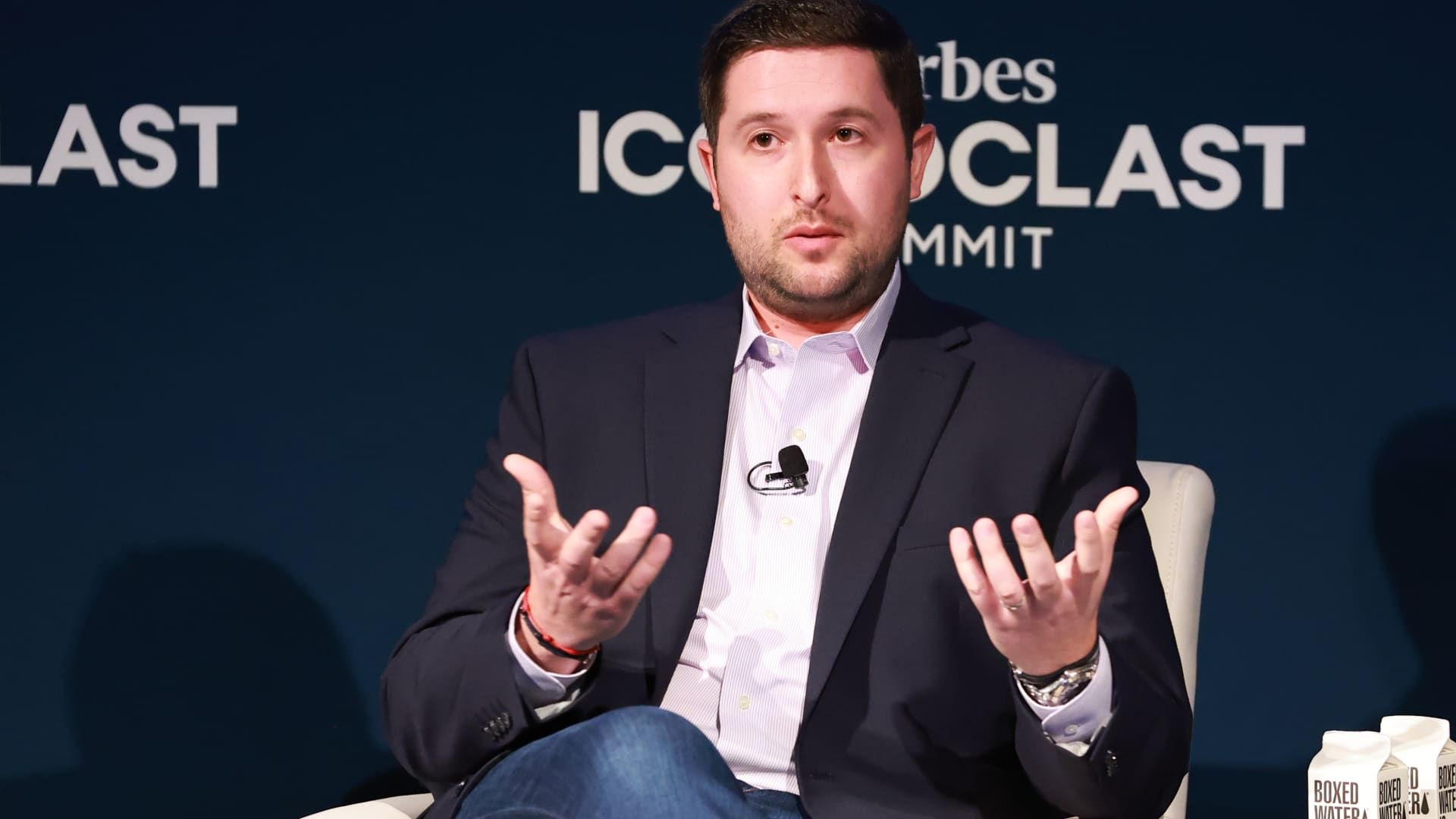Michael Sonnenshein at the 2022 Forbes Iconoclast Summit at New York Historical Society on Nov. 3, 2022.
Arturo Holmes | Getty Images Entertainment | Getty Images
DAVOS, Switzerland — Grayscale Investments CEO Michael Sonnenshein told CNBC that most of the approved bitcoin exchange-traded funds won’t survive, while defending the highest fees in the market for the company’s own product.
The Grayscale Bitcoin Trust ETF is the world’s largest, with over $25 billion in assets under management.
When the U.S. Securities and Exchange Commission approved a swathe of spot bitcoin ETFs earlier this month, much focus was on the management fees that firms from BlackRock to Fidelity were charging.
Many of the ETF issuers were charging 0% fees for a limited amount of time before raising them slightly. Most of the approved ETFs have fees of between 0.2% and 0.4%.
But the Grayscale Bitcoin Trust ETF charges a 1.5% fee.
Sonnenshein laid out several reasons why it is charging that fee, including the fact it is the largest bitcoin fund, has a 10-year track record of “operating successfully” and has a diversified investor base.
“Investors are weighing heavily things like liquidity and track record and who the actual issuer is behind the product. Grayscale is a crypto specialist. And it has really paved the way for a lot of these products coming through,” Sonnenshein told CNBC in an interview at the World Economic Forum in Davos on Thursday.
Sonnenshein said the reason other ETFs have lower fees is that the products “don’t have a track record” and the issuers are trying to attract investors with fee incentives.
“I think from our standpoint, it may at times call into question their long-term commitment to the asset class,” Sonnenshein said.
The Grayscale CEO said two to three of the spot Bitcoin ETFs “will maybe obtain some kind of critical mass” of assets under management, but that the others may be pulled from the market.
“I don’t ultimately think that the marketplace will have ultimately these 11 spot products we find ourselves having,” Sonnenshein said.
